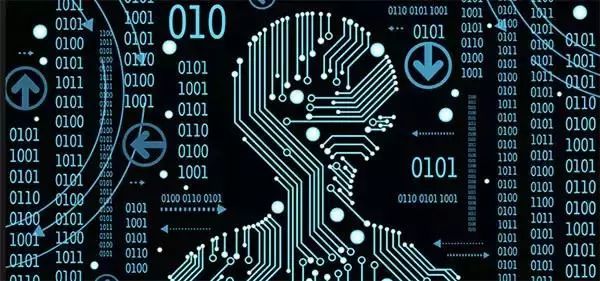Today, some people have a bold claim to the potential of cybersecurity solutions to detect and block cyber attacks with little human intervention. Especially in the past year, due to the enhancement of artificial intelligence and automation capabilities, there will be great potential to combat cybercrime.

The information provided by artificial intelligence is undoubtedly impressive, but you should not think that you can simply apply artificial intelligence to your device to solve problems and eliminate threats.
Even though these artificial intelligence security solutions can work independently, a single-machine-implemented network security approach can make organizations vulnerable to attacks compared to a large number of cyber attacks. Artificial intelligence algorithms and neural networks are complex techniques and revolutionary, but this does not make them a panacea for all diseases.
So what expectations do security professionals have for artificial intelligence in the fight against cybercriminals?
The rise of the machine?
The artificial intelligence market is exploding due to the increasing interest of companies. In 2017, global artificial intelligence systems spent $12.5 billion, and research firm Gartner predicts that artificial intelligence will be used in almost every new software product by 2020.
However, this optimism needs to face reality, because in the 2018 forecast, Forrester said that 75% of artificial intelligence projects will be overwhelmed. This is due to the failure to fully establish these solutions and not to consider operational needs. This means that the concept that artificial intelligence systems can identify and eliminate all threats themselves should be handled and treated with a cautious skepticism. In addition, there is a strong argument that this problem should not be "artificial intelligence can operate independently", so what should it be?
The answer may not be. While artificial intelligence will enable organizations to begin automating some network security workloads, the security team will focus on initiatives to reduce strategy and threats, but this will have some limitations.
After all, human beings have real wisdom, and the real victory of cybersecurity comes from human wisdom. Artificial intelligence will be able to rationalize the information provided by normal network activities and other expert monitoring systems, enabling professionals to make more informed decisions at any given time, focusing on the focus they should focus on.
While the use of artificial intelligence is helpful, it does not address the serious challenges faced by cyber security professionals. Therefore, people should not worry about the prospects of their work. It is important to remember that skilled workers need artificial intelligence solutions. For example, in the face of cyber attacks and threats, artificial intelligence can be combined with human intelligence to proactively identify and mitigate threats more quickly and reliably.
In addition, the capabilities of artificial intelligence solutions are as good as the data they process – of course, this is primarily provided by humans. This means that in terms of network security, artificial intelligence still does not have a unique understanding of threat landscapes. The truly intuitive solution will be people-centric and combine artificial intelligence and machine learning techniques with the skills of expert analysts.
Avoid the trap of artificial intelligence prediction
Therefore, given that artificial intelligence does not work without the involvement of experts, a manual approach is needed. Artificial intelligence should help accelerate the ability of IT and security teams, speed up teams, and allow experts to perform more reasoning tasks. The idea that artificial intelligence should support the work of human experts as part of a semi-automated solution is not new, but it is not just that.
To support this, the cybersecurity industry should resist the attempt to create a separate prophecy that would allow everyone to see artificial intelligence, but instead seek to leverage the agency community of their own expertise. These agents can be integrated with all other existing security solutions and infrastructure to feed intelligence back to a “command†agent that compares ongoing intelligence across the network to normal network activity. This approach provides a series of artificial intelligence voice collaboration that makes the security team's job easier.
In addition, the ability of artificial intelligence to recall data will help improve the security of the organization. Because artificial intelligence can accurately record long-term network activity, historical data can be used very effectively to identify and highlight previous attack trends and present them concisely for human interpretation.
Artificial intelligence strengthens human ability
No matter how complicated, no artificial intelligence entity can face and deal with the cyber threats people face. Artificial intelligence and automation have great potential, but not the work of liberating humans. Artificial intelligence is just one that can support organizations and strengthen existing ones.
Therefore, artificial intelligence will be more powerful and more humane, which will enhance human capabilities, increase productivity, and work side by side with industry experts and users.
This, in turn, allows artificial intelligence to make faster and better decisions based on deeper insights, enabling staff to identify and eliminate threats before they impact the business.
Fiber Optic Components,Parts Of Fiber Optic Cable,Fibre Optic Connector,Parts Of Optical Fiber
Cixi Dani Plastic Products Co.,Ltd , https://www.dani-fiber-optic.com